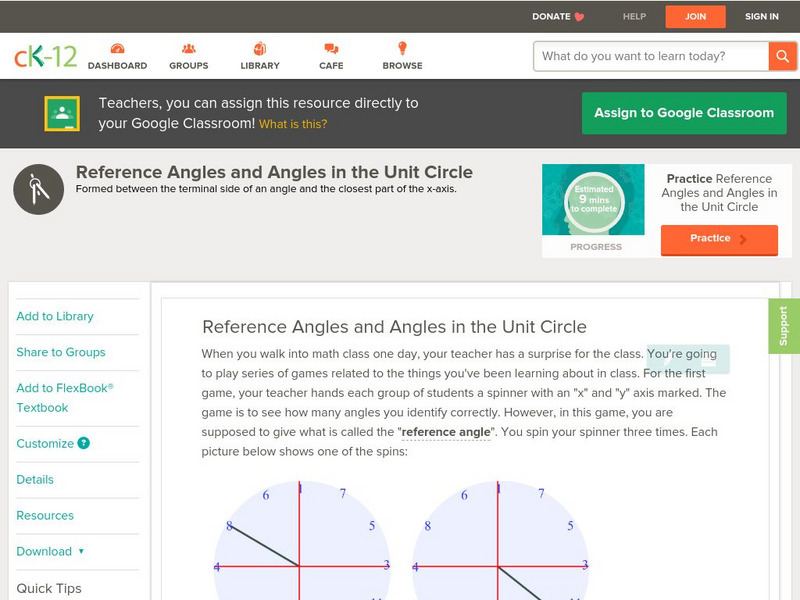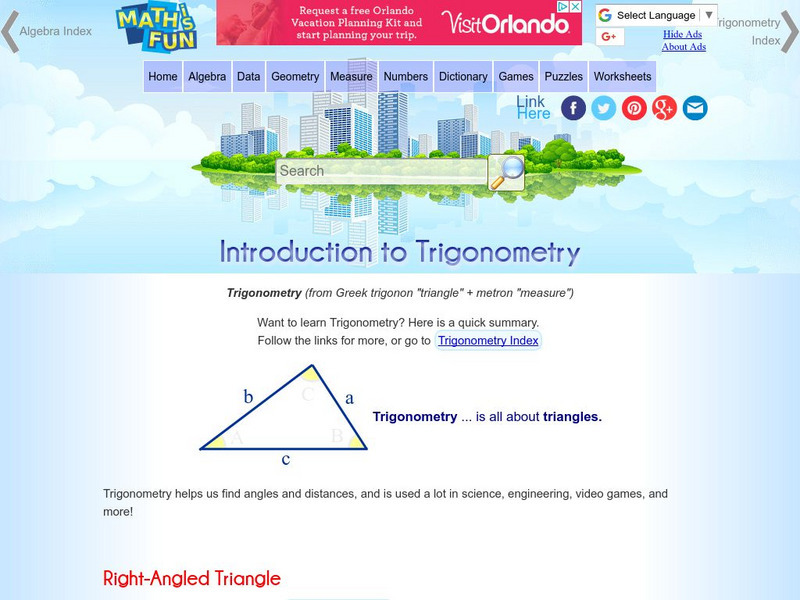CK-12 Foundation
Ck 12: Trigonometry: Reference Angles and Angles in the Unit Circle
[Free Registration/Login may be required to access all resource tools.] Definition of reference angle shown on the unit circle.
Mathigon
Mathigon: Geometry: Circle and Pi: Degrees and Radians
Rather than dividing a circle into some number of segments (like 360 degrees), mathematicians often prefer to measure angles using the circumference of a unit circle - a circle with radius 1. This way of measuring angles is called...
McGraw Hill
Glencoe Mathematics: Quiz on Trigonometric Functions on the Unit Circle
Learners demonstrate comprehension of advanced mathematical concepts in Trigonometry. The questions check understanding on the topic of trigonometric functions on the unit circle.
Alabama Learning Exchange
Alex: Traveling Around the Unit Circle
This lesson is intended to review the key ideas associated with trigonometric functions.The design of this lesson provides a collection of reproducible activities to be used in a classroom setting where students have varied backgrounds /...
Lawrence Hall of Science
The Math Page: Trigonometry
Concepts in Trigonometry are explained and illustrated here by a member of the math department at Borough of Manhattan Community College.
Math Is Fun
Math Is Fun: Introduction to Trigonometry
Students are introduced to concepts taught in trigonometry. The tutorial consists of notes and examples.
University of Colorado
University of Colorado: Ph Et Interactive Simulations: Trig Tour
Take a tour of trigonometry using degrees or radians! Look for patterns in the values and on the graph when you change the value of theta. Compare the graphs of sine, cosine, and tangent.
Math2
Math2.org: Trigonometry Tables
Three trig tables are provided for student and teacher reference. The first table lists the sine, cosine, tangent, secant, cosecant, and cotangent values of all whole-number angles from 0 to 90. The radian equivalent (to four decimals)...
Purple Math
Purplemath: Inverses of Trigonometric Ratios
You know that you can take side lengths and find trig ratios, and you know you can find trig ratios (in your calculator) for angles. What is missing is a way to go from the ratios back to the original angles. And that is what "inverse...







